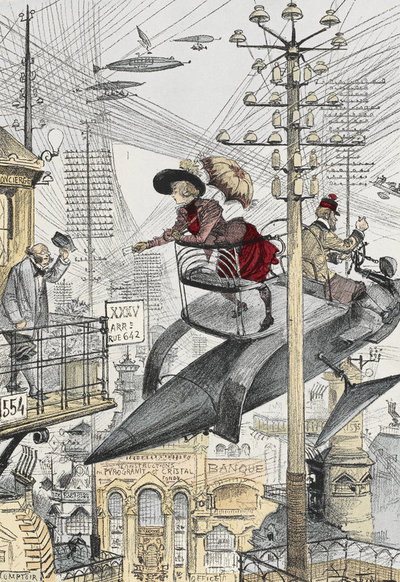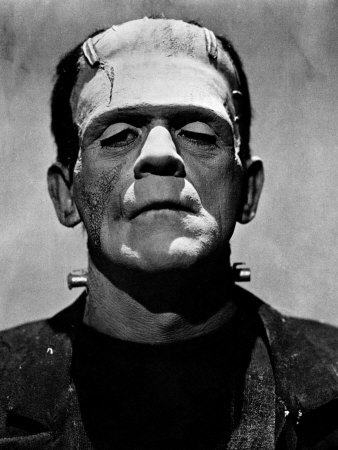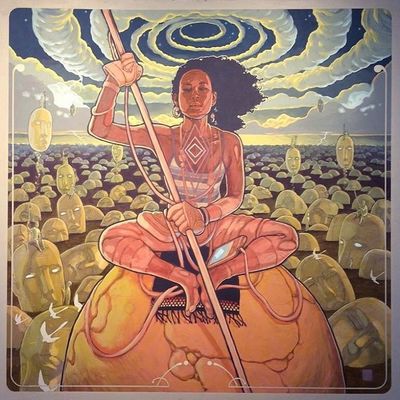|
Gareth Beniston (whose blog you can find here) wrote a very interesting blog post on the Shadow Clarke website about quotas (here). While it addresses the issue in the context of an award, I wanted to address the issue in the context of a book blog, particularly one such as mine which has strict guidelines, a.k.a. quotas. In my professional life, I teach literature. Five years ago, I realised I was teaching literature as I was taught it: white, male, mostly dead. The day I realised this, I introduced quotas in my teaching. It opened a lot of conversations in the classroom to say the least. So when I opened a new scifi and fantasy book blog, I was pretty passionate about giving scifi & fantasy female writers visibility, because, as for literature, it took me years to realise they were here, that there wasn't just Le Guin or Hobb or Butler. At first, there was a huge moment of panic. But the reality is that now there are more female writers I want to review than male writers. Putting that strict rule on my blog had me going out of my comfort zone and realise there was a treasure trove. But then, I also realised it was very white. So in 2017 I'm aiming for a third of my reviews to be about books written by persons of colour. But it's an entirely different kettle of fish! I think that when it comes to female writers, they are here and it's just that we don't look hard enough. But when it comes to PoC writers, the offer is simply appalling. Out of the 19 reviews I've written so far (published and unpublished), 7 are about stories written by a person of colour... Though only three have been published within the past three years. Why? Because I've had to look in not so recent publications to find enough books. Sure, if I were reviewing everything that I come across, there'd be more than three, but I pick and choose. The publications on offer are in an incredibly small number so it's difficult for me to find things I really like, not just to fill my own quota. On the other hand, I made some incredible discoveries: Rosewater and Elysium are the ones that instantly spring to my mind, and also The Book of Swan that I'll rave about next month, all three novels I may have never read if I hadn't been looking so hard for PoC writers. I'm French: culturally, quotas don't come easily to us. But when I see how hard work it is to find books I like recently published and by a PoC, I think the reason my quota exist is a good one. If in my own way, as an obscure book blogger, I can give more visibility to these authors, then maybe, maybe, I can help to change the mind of publishers. That may also be why I still don't have a guideline about QUILTBAG writers. I'm too afraid that whichever goal I set myself, I'll have even more trouble attaining it. Quotas about QUILTBAG writers are also a problem because many writers aren't out and it's certainly not my place to out them or to tell them they should be out so I can fill my quota. But even without having a guideline, I nonetheless look for them and read them. I currently have in my to-be-read list at least three QUILTBAG writers, two of which I'm very hopeful I'll end up reviewing. As for female writers, they don't need a quota: we, as readers, just need to educate ourselves to look for them and not disparage them on the ground that they're female. They're here and many are quality (whatever we consider quality, according to our own tastes and education). It is our own (sub)conscious bias we have to overcome. Yes, basically, it's our fault because they, they are here. (If you're still in any doubt, please check the reviews.) In the end, quotas in the context of a book blog make sense: they encourage us, book bloggers, to get out of our comfort zone, to walk the less beaten tracks. But they also give us much more accurate snapshots of what is currently published rather than what we think is currently published. I'm not sure what our goal as book bloggers is, probably just sharing what we love with the people who read our ramblings. But I think it's also of making them discover great stories, something different from what they already know and that they perfectly know where to find. Finally, it's also a way for us, as book bloggers, to be socially and politically engaged in an era where all that is racist and homophobic and machist is kicking and screaming on social media while the rest of us try to drag them out of the Middle Ages. I wish so hard I shouldn't be concerned about who is which gender (or non binary) or which skin color or which sexual orientation if any. I just want some bloody good stories. But in the world we live in, I'll fight tooth and nail in my own little corner for visibility for marginalised writers. Because the more persons of different backgrounds can write and be published, the more likely I am to read the best stories. And, honesly, that's ultimately the only thing I care about. Whatever I subjectively put behind "best".
0 Comments
Your comment will be posted after it is approved.
Leave a Reply. |
"While we were reading" is an irregular feature about reading science-fiction and fantasy. It can contain guest posts. Nothing fancy, come as you are.
It is also home to all the Subjective Chaos Kind of Awards announcements. |
WHAT IS THE MIDDLE SHELF?
The middle shelf is a science-fiction and fantasy books reviewS blog, bringing you diverse and great stories .
PLEASE SUPPORT AUTHORS.
IF YOU LIKE IT, BUY IT. |
ON THE MIDDLE SHELF
|
KEEP IN TOUCH WITH THE MIDDLE SHELF
|




